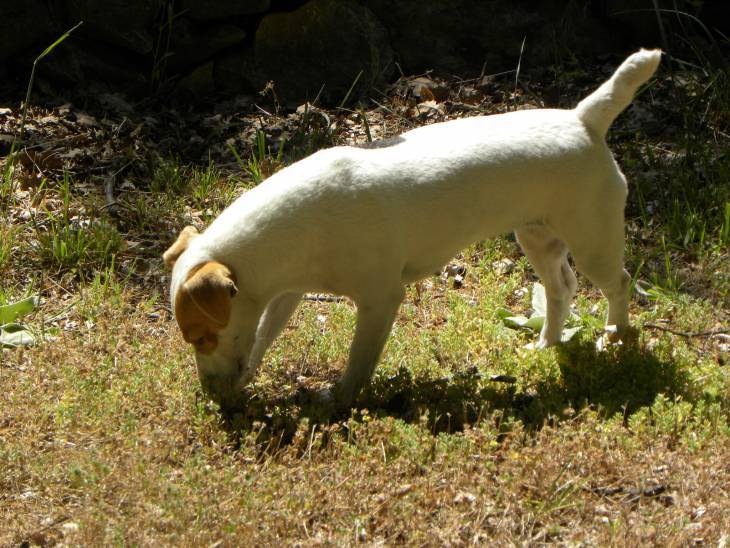Tapeworms in Dogs (How Dangerous Are these Parasites?)
Tapeworms are one of the weirdest creatures in nature. They are certainly a critter that has a reputation for being one of the most vicious parasites that may bother your dog. But is their rather nefarious reputation really warranted?
The Skinny on Tapeworms
When tapeworms and dogs come into the same conversation, one may tend to think of tales where giant worms that seem longer than the dog itself manage to take up residence in a pooch’s stomach. In some cases, these thoughts are warranted, because tapeworms can grow as long as 28 inches. Plus, there are videos out there that prove the phenomenon of the ultra-long tapeworm is not just hearsay.
However, a tapeworm's reputation, for the most part, outshines the damage that it can inflict. The reality is that tapeworms don’t typically cause any serious health issues in a dog. Part of the reason for this is due to how a tapeworm is designed.
A tapeworm’s body consists of different segments, each of which contains its own set of reproductive organs. These segments have the ability to latch on to the intestinal wall of your pooch, where they can suck out blood and other nutrients. However, most segments fall out off of the stomach lining and wind up passing through your dog's digestive system.
When this happens, they could end up in your dog’s poop. Other times, they can stick to the fur that surrounds your dog’s butt. This could cause your dog discomfort, and he may respond to this by scooting across the floor of licking his backside.
While the tapeworms that do stick to your dog’s stomach lining do suck away some of your dog’s blood and nutrients, they do this very slowly. While the condition could cause your dog some weight loss, the loss could be so gradual, you may not notice. While issues like abdominal pain may manifest itself, these conditions are generally considered to be rare.
Does Your Dog Have Tapeworms? Here’s What To Look For

Tapeworms may be odd, but they aren’t as dangerous as other parasites. Still, tapeworms should not be totally ignored since they could cause your dog some discomfort. There are a few warning signs you should look for if you suspect your dog has a tapeworm infection.
The biggest clue you will find is how your pooch treats his butt. If he’s constantly nipping or licking at his anal area, it could be due to tapeworm segments giving him grief. You may also observe your dog scooting here and there as a means to seek relief.
Even though weight loss in your dog may be gradual, you may notice an increase in his appetite without any corresponding weight gain. You could also notice certain changes in his appearance, such as a dull hair coat or dry, flaky skin. You may also see your dog suffering from diarrhea.
Ridding your Dog from Tapeworms
Because of the odd physiological qualities of tapeworms, eradicating them from your pooch can be rather difficult. Splitting the worms won’t work, because it has the ability to regenerate. Because of this, the only way to really destroy a tapeworm is to destroy its head.
Fortunately, there are plenty of de-worming medications that are designed to attack these skinny pests at the head. However, if you are planning on treating your dog for other worms in conjunction with tapeworms, it should be noted that tapeworm medications aren't necessarily equipped to deal with other parasites like heartworms or hookworms. You'll need to consult with your veterinarian to hatch a complete de-worming strategy in this case.
Just Because They Aren’t Urgent Doesn’t Make Them Unimportant!
Even though tapeworms don’t necessarily cause the kind of damage that we may think they do, they can still be a huge nuisance to your dog, causing itchiness, discomfort, and more. Because of this, you should not blow off the presence of these bizarre, multiplying creatures that hang out in your dog’s digestive tract. Clearing them out of your dog will bring an immense sense of relief to your dog, and it’s easy to conceive that your dog will carry a decent measure of gratitude toward you, as well.

